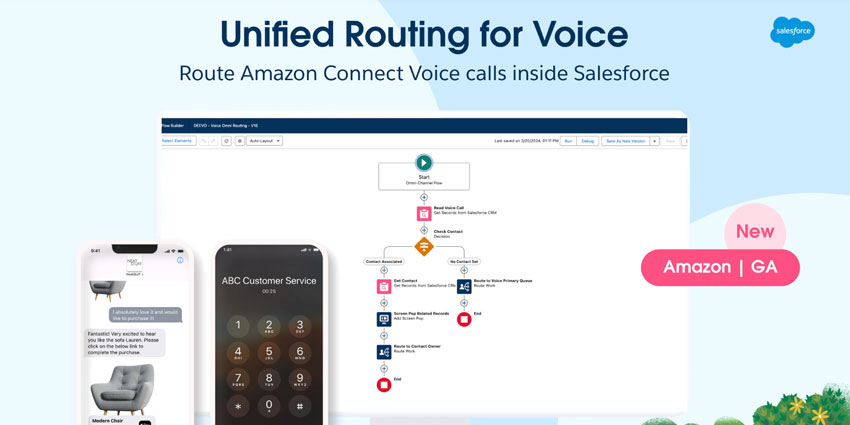Investing in the right CRM solution is one of the most effective ways to make your business more competitive in the age of customer experience. Today’s consumers want more personalised and meaningful interactions with every brand, but delivering those custom experiences across multiple channels can often be complex.
A CRM solution allows you to track the customer journey across various touchpoints and use the information you gather to strengthen your sales, marketing, and service techniques. According to studies, 47% of companies believe CRM tools significantly improve customer satisfaction, while 45% say the technology improved their sales revenue.
With many vendors offering CRM functionality today, how do you ensure you choose the right provider for your needs? Here are some helpful steps to selecting a valuable CRM vendor in 2022.
Step 1: Assess Your Existing CX Technology
The first step in choosing a CRM vendor; is looking at your existing CX solutions. A good CRM vendor should be able to offer a software solution capable of seamlessly integrating with the ecosystem you already have in place for your contact centre, help desk, and other valuable tools.
CRM solutions work best when they have access to as much customer data as possible from multiple environments throughout your ecosystem.
The more you can integrate your CRM service with your existing tools, the easier it will be to minimise information silos; and get a clear view of your target audience. Ideally, your CRM will integrate with your CCaaS technology, analytics tools, recording tools, and even your UCaaS and collaboration environment.
Suppose native integrations aren’t available with your vendor. In that case, you can also consider looking for a provider with access to APIs and developer tools, so you can embed the CRM functionality you need into the tools you already use.
Step 2: Know Your Must-Have Features
As CRM technology becomes increasingly popular (and necessary) among modern brands, the number of evolving tools on the market is more significant than ever. Today, you can access everything from simple CRM solutions with essential contact management tools to comprehensive systems with AI analytics and automation.
Knowing which features you can’t afford to compromise on will make it easier to narrow down your choices. For instance, some of the things you might want to look at include the following:
- Contact management tools and AI solutions for lead scoring and segmentation
- Productivity tools for assigning specific tasks to certain team members
- Activity tracking tools to keep a close eye on the performance of your team
- Analytics for your customers to give you a complete view of the customer service
- Sales pipeline tracking and automated workflows for your sales teams
- Collaboration features like instant messaging and file sharing
- Communication tools (phone, email, SMS, and chat)
The tools you need will depend on your company and what you hope to accomplish with your CRM solution. However, it’s worth remembering the features you need now may not be the same as those you need in the future. Take a big-picture view of your CRM technology, and make sure you can scale your services up or access new features when your business grows.
For instance, you might want to start with some basic contact management options but eventually implement AI bots, sentiment analysis, and automated workflows to help boost team performance. A great vendor will be able to adapt and grow with your brand.
Step 3: Consider Deployment and Customer Service
Next, it’s time to think about your deployment options. In an age where “XaaS”, or everything as a service, is becoming increasingly common, you’ll likely want to access a cloud-based CRM to align with your cloud contact centre and other flexible tools. If you need a specialist hybrid solution, you’ll need to keep this in mind when choosing your vendor.
It’s also worth looking for a vendor capable of helping you to get the most out of your CRM deployment. A good vendor should guide you on how to integrate your tools and make the most of the connections between multiple data sources in your CRM. Look for a company with plenty of documentation, guides, FAQs, and an excellent customer service approach.
Keep an eye out for service differences between pricing packages from your CRM provider. Some solutions only offer the best service to companies willing to pay the highest prices.
Step 4: Look at Security and Reliability
Your CRM will be one of the most valuable tools in your CX ecosystem, providing your sales, service, and marketing teams with the essential insights they need to increase profits and brand loyalty. With that in mind, you can’t afford to invest in an unreliable service.
To determine your vendor’s reliability, you can look at things like uptime guarantees (SLAs) and service commitments. However, it’s also worth looking into the reviews left by other customers about the service. Exploring the market reputation of your chosen vendor on third-party review sites and industry publications should help you to see if the company fulfils its promises.
Once you’re confident you’re getting a reliable service, make sure it’s also secure. Remember, your CRM is responsible for managing customer data – one of your most valuable assets. Security and privacy settings will need to be in place to ensure you’re in line with the latest regulations and capable of protecting your information at all times.
Step 5: Prioritise Employee Experience
Finally, remember the success of your CRM solution depends heavily on whether your employees can easily access and leverage the tools available. Even if you find the most affordable solution from a vendor who offers exceptional customer service, it’s no good if your employees don’t feel comfortable accessing the features on offer.
One good way to ensure you choose a solution suitable for your team is to select beta testers from your workforce to try out a product demo. Many vendors on the market today will give you free trials so you can see how the dashboards look, how the menus work, and how easy everything is to navigate ahead of schedule.
It’s also worth looking for a vendor capable of providing extra support for onboarding and training your team. Many top CRM tools come with various solutions to guide workers today, from video tutorials to webinars on how they can make the most of their new tech.







